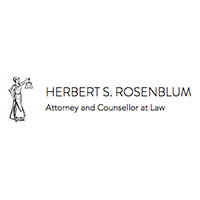Arlington Criminal Lawyer, Virginia
Sponsored Law Firm
-
 x
x

Click For More Info:
-
Price Benowitz LLP
409 7Th St Nw Suite 200 Washington, DC 20004» view mapCriminal Law Working Relentlessly For You
Our firm was built on the understanding that comprehensive representation does not begin and end in the courtroom.
202-600-9400
Karin Riley Porter
✓ VERIFIEDKarin Porter is a practicing lawyer in Virginia who focuses on criminal cases. Ms. Porter has previously served as an Assistant Commonwealth's Attorne... (more)
Philip Douglas Cave
✓ VERIFIEDI have extensive experience as a prosecutor, defense counsel, appellate advocate, and legal advisor in military cases. I have served tours of duty in ... (more)
Herbert S. Rosenblum
✓ VERIFIEDHerbert Rosenblum is a practicing lawyer in the state of Virginia.
FREE CONSULTATION
CONTACTFREE CONSULTATION
CONTACTFREE CONSULTATION
CONTACTFREE CONSULTATION
CONTACTSteven D. Briglia
FREE CONSULTATION
CONTACTFREE CONSULTATION
CONTACT Seth Price Washington, DC
Seth Price Washington, DC AboutPrice Benowitz LLP
AboutPrice Benowitz LLP Practice AreasExpertise
Practice AreasExpertise



